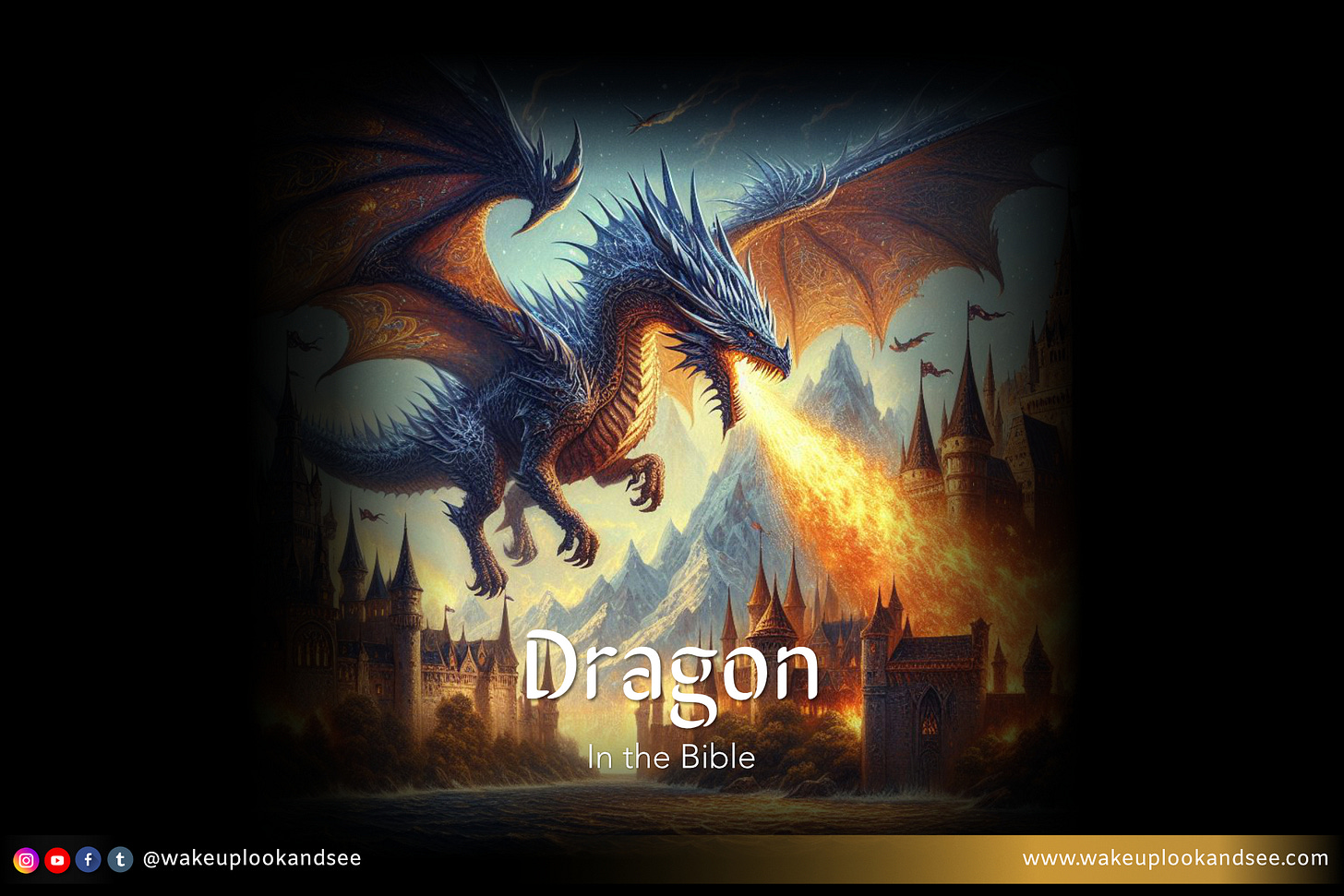What is a DRAGON in the Bible?
The word dragon often conjures up fantastic images of mythical creatures, but this is not the meaning in the Bible. Learn the proper knowledge of dragons and how the Bible uses the word.
The word dragon is a source of intrigue and confusion for readers of the Bible. The media has represented it fancifully, with giant, ferocious, mythical creatures breathing fire; this causes many to view the Bible as a fantasy, which is not ideal. I see the scriptures as clearly enlightened, but the continued depiction or warping of the words used within due to the translation of the time causes many missteps.
Etymology of Words
One of the fundamentals when studying the scriptures is to consider the time it was translated and the usage and meanings of the words.
Etymology
the study of the origin of words and the way in which their meanings have changed throughout history.
When we understand that the dictionary is fluid, we see the constant changes in how words are used or understood across time. Today, the meanings of words are redefined or amended within a short time because of instant and wide-reaching media such as TV, social media, and the Internet. These mediums often hijack words, attributing an understanding to them and, in our totalitarian societies, push a hive adoption of the words through subtle and forceful coercion.
Today's Definition of Dragon
dragon
/ˈdraɡ(ə)n/
noun
noun: dragon; plural noun: dragons; noun: flying dragon; plural noun: flying dragons
a mythical monster like a giant reptile. In European tradition the dragon is typically fire-breathing and tends to symbolize chaos or evil, whereas in East Asia it is usually a beneficent symbol of fertility, associated with water and the heavens.
DEROGATORY - a fierce and intimidating woman."his wife is a real dragon"
another term for flying lizard.
AUSTRALIAN any lizard of the agama family.
Origin
Middle English (also denoting a large serpent): from Old French, via Latin from Greek drakōn ‘serpent’.1
Definition at the time of Translating the Bible
The word "dragon," according to the Oxford English Dictionary (1966), is derived from the Old French, which in turn was derived from the Latin dracon (serpent), which in turn was derived from the Greek Spakov (serpent), from the Greek aorist verb, Spakelv (to see clearly). It is related to many other ancient words related to sight, such as Sanskrit darc (see), Avestic darstis (sight), Old Irish derc (eye), Old English torht, Old Saxon torht and Old High German zoraht, both meaning clear, or bright. The roots of the word can be traced, then, back to most early Indo-European tongues. This may indicate that it is possible the immediate ancestor of the word was a part of the original hypothetical Indo-European tongue, which may have been a part of the vocabulary of Japheth's descendants, soon after the Flood and the dispersion from Babel.
The Oxford English Dictionary points out that Spakelv is derived from the Greek stem Spak meaning strong. The connection with dragons is obvious. According to the OED, the word was first used in English about 1220 A.D. It was used in English versions of the Bible from 1340 onwards.2
The word dragon entered the English language in the early 13th century from Old French dragon, which in turn comes from Latin: draconem (nominative draco) meaning "huge serpent, dragon", from Greek: δράκων, drakon (genitive drakontos, δράκοντος) "serpent, giant seafish". The Greek and Latin term referred to any great serpent, not necessarily mythological.3
The information above shows that the word dragon entered the English language in the 13th century with the meaning “huge serpent” and has been used in the English versions of the Bible from 1340 onwards.
Conclusion
The word dragon is used in the scriptures not as the mythical imagery creature paraded in all modern-day media outlets but as the same serpent spoken of in Genesis 3.
Etymology alongside misdirection must be considered when reading the scriptures since the scriptural translations are from various periods, using the understanding of the word at that time of writing.
Sources:
These sources are subject to their owners, and they may change the information at any time. These quotes were taken on 28/10/2018, noting that the Internet is fluid and may change to suit a desired narrative.





